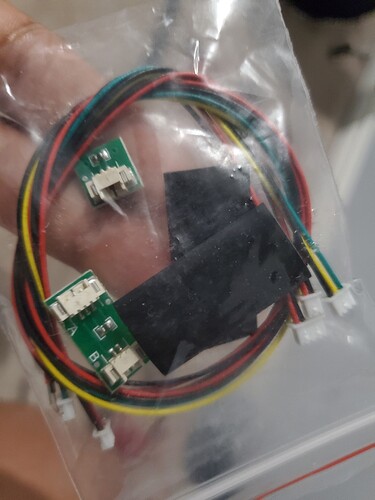depends once i learn how to use matlab…
It’s super easy, you can do the entire thing in about 10 lines of code
will look into it but i doubt im gonna end up
if someone else wants to simulate it i would love to see
I would be much, much more concerned about voltage sag (performance) at current levels that high.
(assuming wire insulation and cell protection with a decent temp rating…blah…blah…blah)
Gonna be building a 12s7p P28A pack this weekend. Should I go 10 AWG for the main discharge wires?
Also, might want to put a fuse on the main discharge, any recommendations on where I can get one? Say 200 or 300A
Whatcha plugging it into? You only need 16awg to run a single hub motor
Unity and a couple 6374s
10 should be fine, see if you can get double 12 or 8 if it’s a long distance
with this being the case would it make sense to make of of those welding rigs with a spring loaded arm that holds the positive probe down so you only focus on moving the negative?
Another bad idea?? lol
I don’t quite understand why the kweld is significantly better
Constant welding, great support, basically when you assemble it your done, I didnt touch mine for 2.5 years of 3-4 batteries per month, literally a million of welds.
Also a fun fact, the mosfets can handle 10000A cont, but are limited to 2000 for safety and durability.
The malelectrics looks solid as well, but compared to kweld, its small footprint and far worse electrodes kill the deal for me.
For a few batteries they will probably work the same, but for any serious application, kweld! ![]()
Also a fun fact, the mosfets can handle 10000A cont, but are limited to 2000 for safety and durability.
I’m a little doubtful….
Those FETs are rated to 330A continuous when hot (which they will be) and need to be on a heat sink that can pull away over 100W of heat from each of the six FETs even operating at “only” 2000A. That’s 600W of heat to be removed to be able to handle 2000A continuous. Can’t possibly be done with that setup.
The PCB would warp and delaminate its copper way before you could operate at 2000A continuous anyway though.
Short 2000A pulses are another thing entirely, much easier to handle, and I love my kWeld. You’re right, they’re great units.
temperature sensors 
Those FETs are rated to 330A continuous when hot (which they will be) and need to be on a heat sink that can pull away over 100W of heat from each of the six FETs even operating at “only” 2000A. That’s 600W of heat to be removed to be able to handle 2000A continuous. Can’t possibly be done with that setup.
Im recalling this from memory, so I could be wrong, maybe its 10k pulsed then haha, thanks for correcting me.
Anyways kweld is the only welder that i used for more than 2 months that didnt short its mosfets while welding. Im not a fanboy, if there was a better option and I was aware of it, I would switch to it ![]()
Im not a fanboy, if there was a better option and I was aware of it, I would switch to it
there are industrial spot welders. they just cost a fortune
Video showing how to cut big rolls of paper to different sizes
can you upload it not in .mov format so non iphone users can see it?
thanks so much
MP4 vid of cutting big rolls of paper to custom sizing
Damn I think we all need one of those
is it still advisable to solder first and then weld or is it ok to solder to a nickel strip already welded
I always prep my nickel tabs with a pool of solder before welding them to the p-groups, that way I can spend less time soldering after the tabs are welded on.
I know lots of people who dont bother with that though. I’m not sure how much of a difference it makes.
